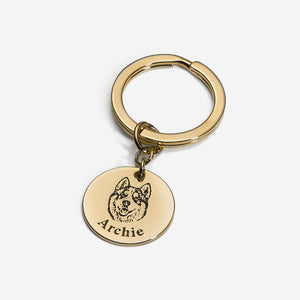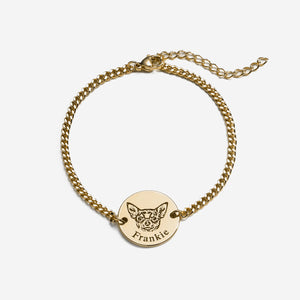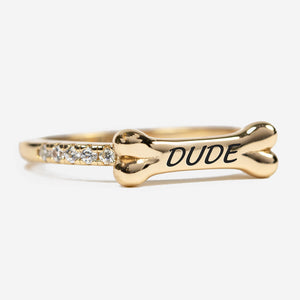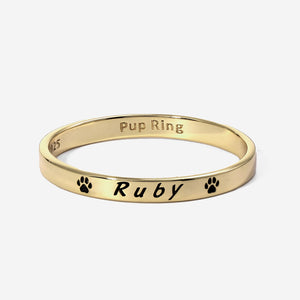We’ve all had problems that we came across when trying to raise a respectable four-legged friend. We’ve all searched around for solutions for our training troubles. But maybe you’ve thought about fun tricks you can teach your dog. Well, do you have greater ambitions? Do you want your dog to be a therapy dog? Or to enter into competitions? Or to be a superhero? Well a great first step in reaching for new heights in your dog training is to earn your dog’s own Canine Good Citizenship certificate?
Canine Good Citizenship, or CGC, is a set of guidelines and tests set up by the American Kennel Club to officially certify your pup as a very good dog (™). In case you weren’t aware, the American Kennel Club is one of the largest, most respected organizations when it comes to just about any aspect of dogs- including a registry for breeders, supporting dog disease research, shelters, providing tons of educational content all about dogs, and yes, providing guidelines and tests for excellent dog behaviours. Getting your dog a CGC certificate from the AKC is a huge honor!
You will likely have your own reasons for seeking out CGC training and certification for you pup. It’s a great foundation for a great relationship with your dogs. It can also lead to more advanced training and certifications in your pup’s future. Whether you’re interested in more advanced training in the future for your dog, or you just want the honor of proving your pup to be a very good dog(™), here’s what your furry friend will be evaluated for:
Greets a friendly stranger
Sits politely for petting
Welcomes being groomed, brushed; allows paws and ears to be handled
Walks as directed on a loose leash
Moves politely through a crowd
Sits, lies down, and stays in place on command
Comes when called
Behaves politely around other dogs
Reacts with confidence to distractions
Can be left with a trusted person
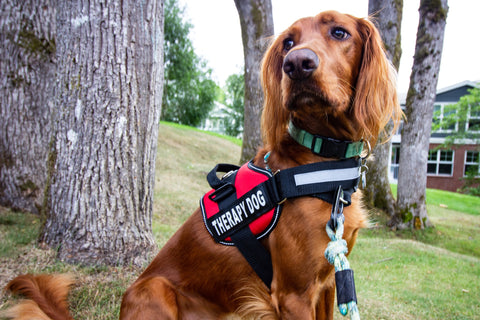 As I’m sure you expected, this test evaluates your dog’s manners in most settings you may find yourself in. It’s important that your pup behaves not only with you in your own home, but can be a good neighbor and citizen anywhere you go. By demonstrating a strong foundation and understanding in all these categories, your pup shows that they are truly calm and confident to the core. You can feel comfortable taking your dog out and about, having them groomed, being a good playmate at daycare, and more.
As I’m sure you expected, this test evaluates your dog’s manners in most settings you may find yourself in. It’s important that your pup behaves not only with you in your own home, but can be a good neighbor and citizen anywhere you go. By demonstrating a strong foundation and understanding in all these categories, your pup shows that they are truly calm and confident to the core. You can feel comfortable taking your dog out and about, having them groomed, being a good playmate at daycare, and more.Canine Good Citizenship and You
Canine Good Citizenship is more than the pride of owning a good dog. Earning your pup’s CGC certificate demonstrates that you, as an owner, have tons of good qualities and knowledge.
It shows you understand your dog. The only way to have a truly well-trained dog is to understand and promote good cross-species communication and understanding. Having the ability to effectively communicate with your dog means that you can also better understand any other dogs you meet. It can also help you understand and evaluate other situations you run into. See a stray out and about? Although it’s not recommended to approach and interact with every strange dog you come across, understanding the way dogs behave and communicate may help you understand a strange dog’s current feelings and demeanor. It can also help you pick up on when other dogs may be beginning to be uncomfortable and de-escalate situations you find yourself in.
It shows you care about your dog on a higher level. We all love our dogs, probably to the end of the earth and back. Earning your dog’s CGC shows you have put extra love, time, and effort not only into your dog’s training and behavior, but your knowledge about dogs, communication, and training. It demonstrates an above average time and effort dedication to your pup.

It shows you care about your community. Being a good neighbor is always a way to show others that you care. When your dog demonstrates their ability to be a good citizen, it shows that you care about being a great team and being respectful of others. You know your dog will always be nice and friendly to strangers, will behave appropriately around other dogs, and you know that your dog will not cause trouble. A properly trained dog is also easier for other professionals to care for, like not squirming or nipping while they’re at the groomer, and anyone that babysits your pup will spend a lot more time having fun and less time struggling with a mischievous troublemaker.
The benefits of CGC training classes
Taking training classes is something I’d honestly recommend for every dog owner at some point, and the benefits are amplified in a structured course whose goal is to earn your pup’s CGC certificate. Working with a trainer, whether individual or in a class setting, is a great way to learn how to effectively communicate with your dog and to understand how they communicate with you and other people and dogs.
-A trainer can offer an unbiased evaluation of your training techniques and communication. No matter how good you think you are at working with your dog, it is also incredibly valuable to have another knowledgeable person observe how you work together. What kind of body language are you using? Are you communicating well, or are you giving your dog mixed signals? Are you rewarding every good behaviour that happens? Are you correcting any bad behaviour? Are you really present and aware of everything encompassing your training?
 -A trainer can help you make simple yet effective corrections to your training techniques. Simple changes in your methods that you may have never thought about may make all the difference to your dog’s understanding and behavior. For example, one of the biggest struggles I had with Cookie was leash pulling. No matter what I did or what tools I used, I just couldn’t seem to get him to stop dragging me along on walks. After spending a few minutes with a trainer though, he was perfect! What did he do? The trainer used a slip lead that sat just under my dog’s chin, which made it easy to control where Cookie was looking and communicate things like direction, turns, stops, and speed just by adjusting the pressure and direction applied to the lead.
-A trainer can help you make simple yet effective corrections to your training techniques. Simple changes in your methods that you may have never thought about may make all the difference to your dog’s understanding and behavior. For example, one of the biggest struggles I had with Cookie was leash pulling. No matter what I did or what tools I used, I just couldn’t seem to get him to stop dragging me along on walks. After spending a few minutes with a trainer though, he was perfect! What did he do? The trainer used a slip lead that sat just under my dog’s chin, which made it easy to control where Cookie was looking and communicate things like direction, turns, stops, and speed just by adjusting the pressure and direction applied to the lead.
-Proper training can save you time, frustration, and money. Think about how much time you have spent trying to teach your dog a new skill, or even just proper behaviour. Think about how much money you may have spent on things like new tools, collars, leashes, harnesses, maybe things like special kennels or medications to try to get an anxious dog to walk nicely, or to reduce anxiety or destructive behaviors, or maybe even replacing things around your house that an unruly or misdirected pup has destroyed. Think about all the emotional effort or frustration that may come with struggling to teach your pup. When you first think of working with a trainer, you might think to yourself that you can do it for free at home, but if you consider the costs you may come across a little at a time when you struggle with your pup, getting help with training may be less expensive in the long run.
-A trainer is a great resource for any dog advice or recommendations. Your trainer does their job because they love dogs, and they will likely be happy to point you in the right direction when it comes to things like who offers great services like grooming or veterinary care, what kinds of dog food they prefer for their own pups, or even where you can learn more about your dog. Their knowledge is definitely something worth listening to!

-Training classes help you connect with your community. Taking a class is obviously a great way to meet other owners and give your dog an opportunity to meet other dogs. It’s a great way to observe others and learn from their techniques, as well as their mistakes. Watching other owners interact with their dogs in a formal setting can bring you even more understanding of the communication between human and dog. Group dog classes can connect you with those who live in your community, and working together to better your relationships is always worthwhile.
Can I get my dog’s CGC without classes?
It’s possible to train your own pup to be a good citizen, although you will still need to take the test with a trainer to get your dog’s certificate and registration with the AKC. If you’re interested in teaching your pup what it takes to be a good dog, you can have a look at the criteria above and figure out where your dog struggles the most. We have lots of detailed blog posts to help you, from how to teach your dog to do anything, to how to trim a dog’s claws, even if they hate it. Spending the time to work with your dog on these things is a good idea in general. Even if you decide to take classes in the end, spending time with your dog up front to work on these skills will give you a leg up when it comes to excelling in a professional class setting.
Here’s what training my dog as a Canine Good Citizen did for me.
My own dog Cookie went through training and earned his own CGC certificate as a young pup. He actually lived with me on campus my first year at college as we explored options in training him as a service dog. It was new territory for both me and the disabilities counselor at my school, which had never encountered a student in need of such accommodations. Cookie attended my classes with me at the time, and being comfortable and confident in my ability to safely keep him with me as we worked through this difficult time in my life was huge, and our reason for getting his CGC test and certificate. In most cases, only fully trained service dogs would be permitted such accommodations, but like I said before- this was new territory for both me and my private university as we learned together what it meant to have a service dog, and if Cookie truly qualified as a service dog.
Cookie was trained to help me with my disability, and although I did not adopt him as an already professionally trained service dog (side note, there is no official certificate or license for service dogs), he enabled me to continue my education at the time by lessening the impact of my PTSD on my ability to perform the daily tasks needed for a normal life. Among the requirements, he also had to behave appropriately in public, and in my case that meant he had to perform his work without ever being a disruption or a distraction in a public setting. His CGC training was definitely a huge boost for both of us in that context.
Even though I no longer utilize Cookie as a service dog, his formal training has helped us have a much greater, stronger relationship. I understand him and he understands me. He still knows to help me if I ever regress or have panic attacks, and having him around continues to make a huge difference in my life. It also helped me learn skills that I can use when it comes to working with other dogs, and I definitely want to train any other pups I own in the future to be a Canine Good Citizen.
What do you think? Do you want to get your dog its CGC Certificate?
We’d love to hear what you think about this week’s article! Do you want to pursue a true CGC certificate? Are you maybe motivated to spend more time working with your dog? Do you have any new ideas on where your dog can improve? Let us know! Thanks for reading, and I look forward to writing for you again soon!




